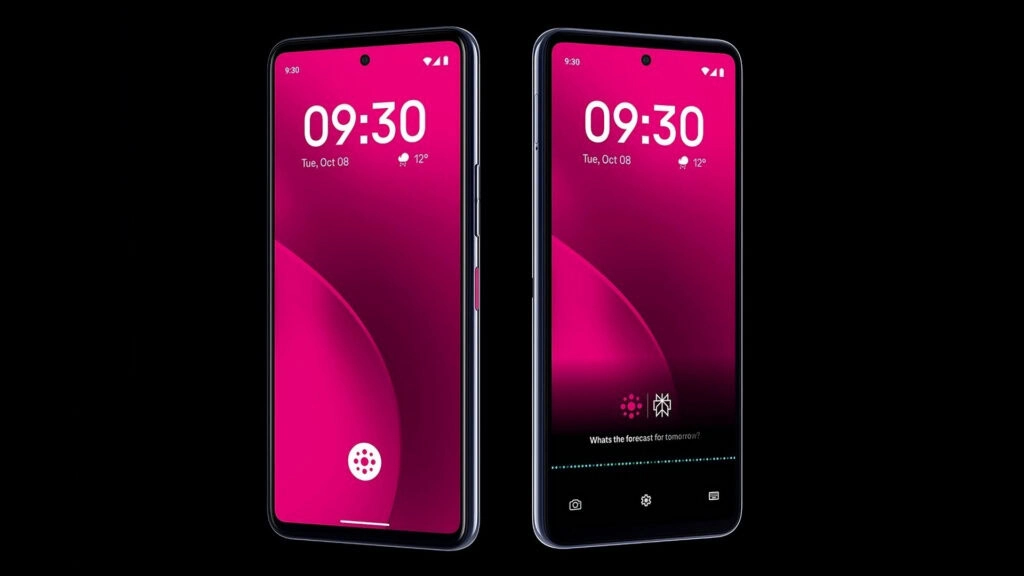Deutsche Telekom has launched a smartphone that eliminates visible apps through an AI-powered voice assistant.
Users initially see only a magenta-colored phone interface and can ask questions directly. The voice assistant, powered by American AI company Perplexity, responds and displays relevant information such as shopping suggestions or restaurant menu translations.
Clicking on apps is no longer necessary. While apps remain on the phone, they run in the background. Users can swipe away the AI interface to access apps in the traditional manner if desired.
What other companies offer
Major smartphone manufacturers have similar concepts: Samsung with “Galaxy AI” and Apple with “Apple Intelligence” also use AI assistants to simplify app usage. Whether Deutsche Telekom can compete against such established international brands with its own smartphone remains questionable. The Bonn-based company is focusing on keeping prices as low as possible: Telekom’s AI phone costs just 149 euros, significantly less than other smartphones.
The device allows “compact access to various AI services and therefore a simple experience,” says Claudia Nemat, member of the Deutsche Telekom Board of Management. She sees AI as “the great technology of our time,” though one that people still have significant reservations about.
A YouGov survey of 1,020 people in Germany conducted in July revealed large knowledge gaps. When asked whether they were familiar with AI chatbots such as ChatGPT, Gemini, or Perplexity, only 15% of respondents answered affirmatively and stated they had already used AI agents. Another 24% had heard of them but had not yet used them.
Where the smartphone is produced
A Vietnamese company manufactures the smartphone on behalf of Deutsche Telekom. The AI-Phone is essentially an evolution of the T-Phone, which Deutsche Telekom has sold for several years. The Bonn-based company remains tight-lipped about the T-Phone’s success and does not communicate sales figures.
A tablet version of the AI phone is also available. The new devices can be seen as part of Telekom’s marketing strategy to present itself as an innovative company.
What the competition is doing
Other German mobile network operators are avoiding such in-house developments. Vodafone, O2, and 1&1 emphasize the advantages of AI functions for smartphone operation while pointing out that major providers of smartphones and AI technology already exist in the market.
“We rely on partnerships with Google, Microsoft, and other providers whose smartphones and operating systems are used by millions of consumers daily,” says Guido Weissbrich from Vodafone Germany’s management.
An O2 spokesperson notes that established smartphone manufacturers are integrating more AI functions into their devices. “These developments are already setting standards for millions of users worldwide.” O2 is focusing instead on applying AI expertise within mobile networks.
Performance didn’t always run smoothly
Deutsche Telekom presented its AI phone at the MWC mobile communications trade fair in Barcelona in March. Board member Nemat demonstrated the device by asking sample questions that the AI assistant answered. This often worked well—for example, she filmed her surroundings, and the AI assistant provided a precise description of the environment. This feature is intended to help people with poor eyesight or blindness.
However, shortcomings became apparent during the demonstration. When Nemat asked about the best tapas bars in Barcelona, the AI assistant promoted helicopter flights for city tours—addressing a completely different topic. Deutsche Telekom attributed this error to the difficult acoustics in the exhibition hall, explaining that the AI assistant had misunderstood the question. The demonstration environment was indeed very loud.
dpa


